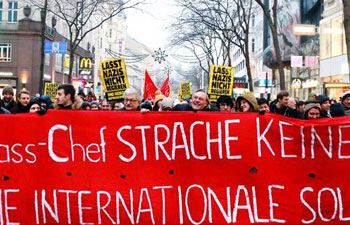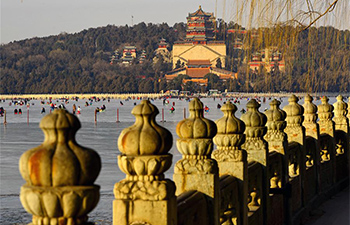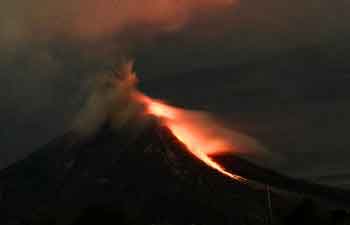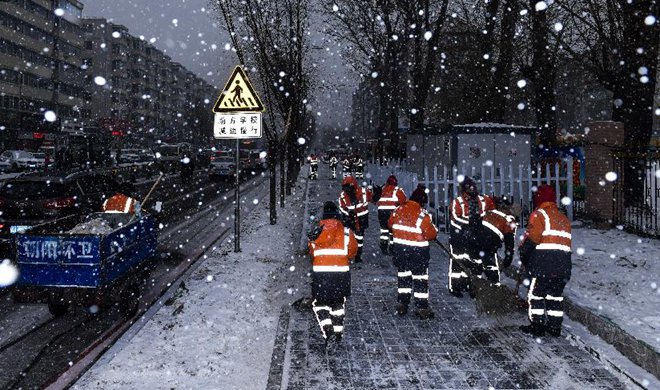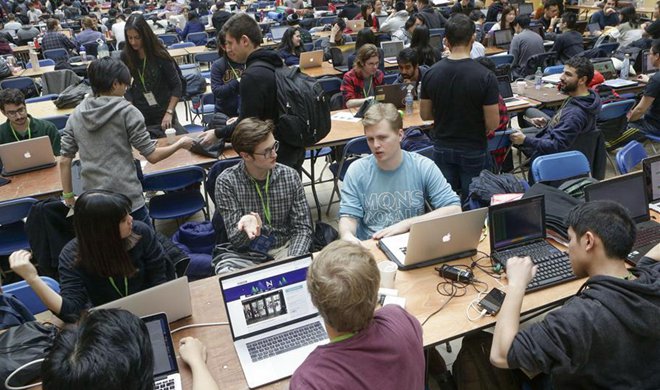BEIJING, Jan. 14 (Xinhua) -- The year of 2018 is set to be a year for major elections across the world.
In Latin America and the Caribbean, six countries including Brazil, Cuba and Mexico will hold leadership and parliament elections. In Europe, parliament elections in Italy and Hungary are worth attention. The Middle East will also witness Egypt's presidential election and Iraq's parliament election.
So, what are the most noteworthy elections to take place in the year?
ITALY
The Italian parliament was dissolved on Dec. 28, 2017, and a new election will be held on March 4, 2018.
Italy is somewhat overwhelmed by recent years' refugee crisis, as the country is a landing point for North African refugees when entering Europe.
The contenders were a center-right coalition, more or less cohesive; a center-left front dominated by the Democratic Party -- which ruled the cabinets in the last five years, and was now losing ground -- and the anti-establishment Five Star Movement, which has always taken pride in refusing electoral alliances.
Russia will hold presidential election on March 18, 2018. Polls have shown that 80 percent of Russian people trust current President Vladimir Putin, who signed up as an independent candidate on Dec. 27.
Observers believe that Putin's reelection is highly likely, with a stable governance foundation, high rate of public support and a weak opposition. The main challenge facing Putin is not the election, but figuring out how to lead the country to solve thorny domestic and diplomatic problems in the next six years.
CUBA
On April 19, 2018, Cuba's national legislators will vote for the country's next president and successor to 86-year-old Raul Castro, who officially came to power in 2008 after his brother Fidel Castro retired for health reasons.
A shift of power from an old generation to a young generation is set to take place on the island in 2018.
CAMBODIA
On July 29, 2018, Cambodia will hold its parliament election, and the Cambodian People's Party, led by Cambodian Prime Minister Samdech Techo Hun Sen, is expected to continue its victory.
However, the election will serve as a testing ground for public opinion, and reflect domestic attitude on Western political interference. On Nov. 16, the country's Supreme Court dissolved the main opposition Cambodia National Rescue Party after its leader Kem Sokha was arrested on Sept. 3 and was charged with treason for conspiring with a foreign power to attempt to overthrow the government.
BRAZIL
On Oct. 7, 2018, presidential election will take place in Brazil. The major South American country has gone through political turbulence in recent years, with a continuous economic downturn. The election is expected to bring the country back on track.
Surveys show left-leaning ex-president Luiz Inacio Lula da Silva is the favorite ahead of the 2018 elections, but it is still unknown whether Lula will be able to run given the current corruption cases lined up against him.
In September, Japan's ruling Liberal Democratic Party (LDP) is set to elect a party president, and current president Shinzo Abe will strive to win for the third consecutive time.
Following a dramatic victory in a snap election in October, the ruling party is now pushing ahead with the prime minister's long-cherished desire to revise the Constitution.
The LDP, its junior coalition partner the Komeito party and other pro-constitutional reform forces occupied two-thirds majorities in both chambers of the Diet, and required to formally propose parliamentary debate on amending the Constitution.
On Nov. 6, 2018, the United States will hold midterm congressional election, the result of which could be significant for President Donald Trump and his Republican Party, commonly known as the GOP.
The party of the incumbent president has historically faced challenges during any president's first midterm election and often control of Congress changes hands at that point.
If the GOP does lose Congress, Trump will have to figure out how to build bridges with a Democratic Congress, and he might face more obstruction in pushing forward his political agendas in the remaining term.
THAILAND
Thai Prime Minister Prayut Chan-o-cha said in October that the general election date would be announced by June 2018 and the election will be held in November. This is the first general election after a coup in 2014.
According to the new constitution, 250 senators picked by the military will be empowered to vote for a new prime minister along with 500 elected members of the House of Representatives, which means the new prime minister may not come from the party that wins the majority seats in the House of Representatives.






